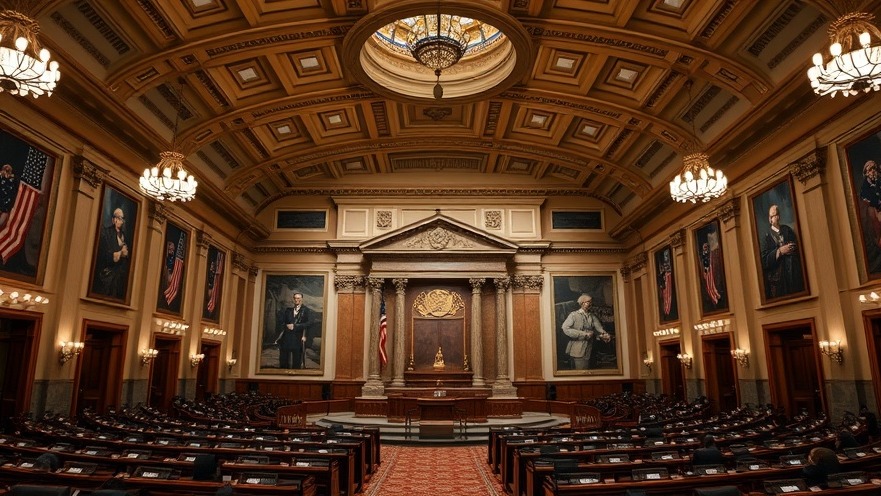
Texas Governor Greg Abbott's Push for Legislative Accountability
In a bold move that may redefine how Texas lawmakers approach legislative sessions, Governor Greg Abbott has proposed new penalties for those who attempt to halt proceedings by fleeing the state. This initiative is seen as a direct response to last year’s events where Democrats left Texas to obstruct a Republican-led agenda. Abbott aims to ensure that elected officials remain accountable to their constituents by fortifying the rules governing legislature attendance.
Understanding the Background of the Quorum Break
This proposal follows a critical moment in Texas politics where a significant quorum break disrupted legislative processes. In May 2021, when Texas Democrats walked out of the House to prevent a vote on a controversial voting bill, it highlighted the lengths to which lawmakers might go to express dissent and protect their political beliefs. Governor Abbott's latest tactics aim to deter such actions by imposing penalties that could include punitive measures against those who leave the state to prevent legislative progress.
Texas Political Climate: A Chess Match
The political landscape in Texas has always been a contentious arena, with significant divides between party lines. The Democratic walkout was an effort to oppose what many viewed as oppressive legislation. In contrast, Abbott's proposed penalties could be perceived as an attempt to reassert dominance over the legislative process. Understanding these tensions is crucial for Texas citizens keen on grasping the implications of these proposed changes.
Future Predictions: The Implications of Abbott's Penal System
If Abbott's proposal gains traction, we might witness changes in how legislators approach their responsibilities. There could be a chilling effect on dissenting lawmakers, stifling the very expression of grievances that democracy thrives on. Conversely, supporters argue that clear accountability measures could result in more productive legislative sessions, thus benefiting the constituents who elected these officials.
The Broader Impact on Governance
As Texas grapples with such sweeping proposals, the voice of the people remains pivotal. Citizens will need to weigh the ramifications of proposed penalties not just for their elected officials but also for the democratic process itself. Will this lead to better governance, or are we witnessing a shift towards harsher political climates?
Key Questions for Texans
As discussions unfold, several questions emerge for Texas citizens: How does this law align with the values of accountability and representation? Will residents feel comforted knowing that their representatives are pressured to attend sessions, or will it discourage meaningful political dialogue? These inquiries not only reflect current sentiment but also set the stage for future political engagement.
Actionable Insights
It's essential for Texas citizens to stay informed about Abbott's proposals and participate in discussions regarding legislative accountability. Engaging with local community forums or contacting representatives can shape how this initiative evolves. Awareness is a powerful tool that can potentially facilitate positive change.
Final Thoughts: Staying Engaged in Texas Politics
As the legislative landscape shifts, so too should the commitment of Texans towards political engagement. Participating in discussions about legislative changes can influence the trajectory of policies that impact everyday life. Staying informed means being part of the process.
 Add Element
Add Element  Add Row
Add Row 



Write A Comment